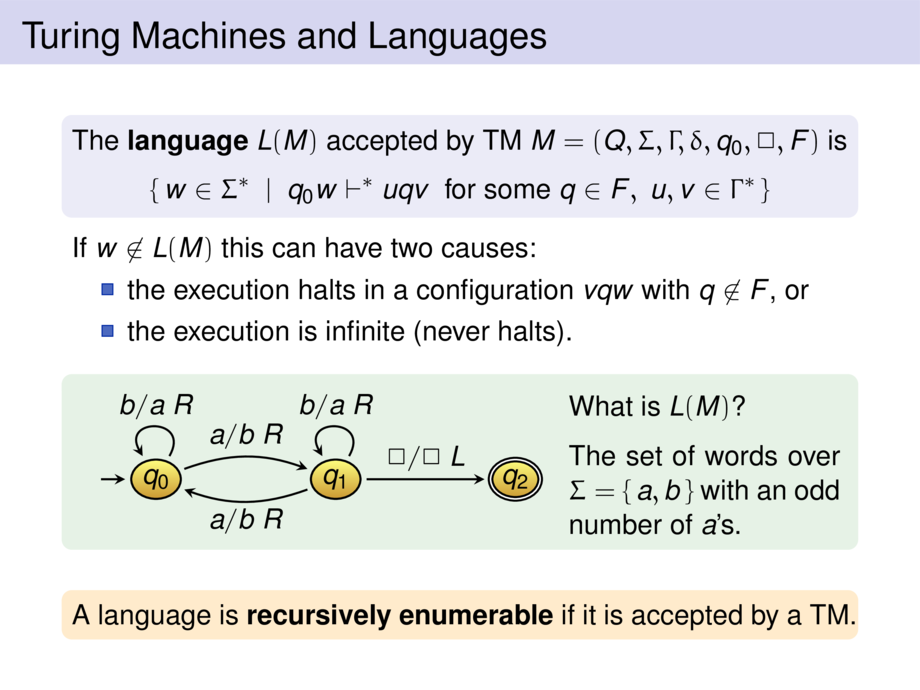



































































































30/85
\begin{frame}{Turing Machines and Languages}
\begin{block}{}
The \emph{language $L(M)$} accepted by TM $M = (Q,\Sigma,\Gamma,\delta,q_0,\Box,F)$ is
\begin{talign}
\{\, w \in \Sigma^* ~\mid~ q_0 w \vdash^* u q v \;\text{ for some $q \in F,~u,v \in \Gamma^*$}\,\}
\end{talign}
\end{block}
\pause
If $w \not\in L(M)$ this can have two causes:
\begin{itemize}\setlength{\itemsep}{0pt}
\item the execution halts in a configuration $vqw$ with $q \not\in F$, or
\item the execution is infinite (never halts).
\end{itemize}
\pause
\begin{exampleblock}{}
\begin{minipage}{.64\textwidth}
\begin{center}
\begin{tikzpicture}[default,node distance=25mm,->,s/.style={minimum size=5mm}]
\node (q0) [state,s] {$q_0$}; \draw ($(q0) + (-8mm,0mm)$) -- (q0);
\node (q1) [state,s,right of=q0] {$q_1$};
\node (q2) [fstate,s,right of=q1] {$q_2$};
\draw (q0) to[bend left=20] node [label,above] {$a/b$ $R$} (q1);
\draw (q0) to[tloop] node [label,above] {$b/a$ $R$} (q0);
\draw (q1) to[bend left=20] node [label,below] {$a/b$ $R$} (q0);
\draw (q1) to[tloop] node [label,above] {$b/a$ $R$} (q1);
\draw (q1) to node [label,above] {$\Box/\Box$ $L$} (q2);
\end{tikzpicture}
\end{center}
\end{minipage}%
\begin{minipage}{.35\textwidth}
What is $L(M)$?
\pause\medskip
The set of words over $\Sigma = \{\,a,b\,\}$
with an odd number of $a$'s.
\end{minipage}
\end{exampleblock}
\pause\medskip
\begin{goal}{}
A language is \emph{recursively enumerable} if it is accepted by a TM.\!\!
\end{goal}
\end{frame}

